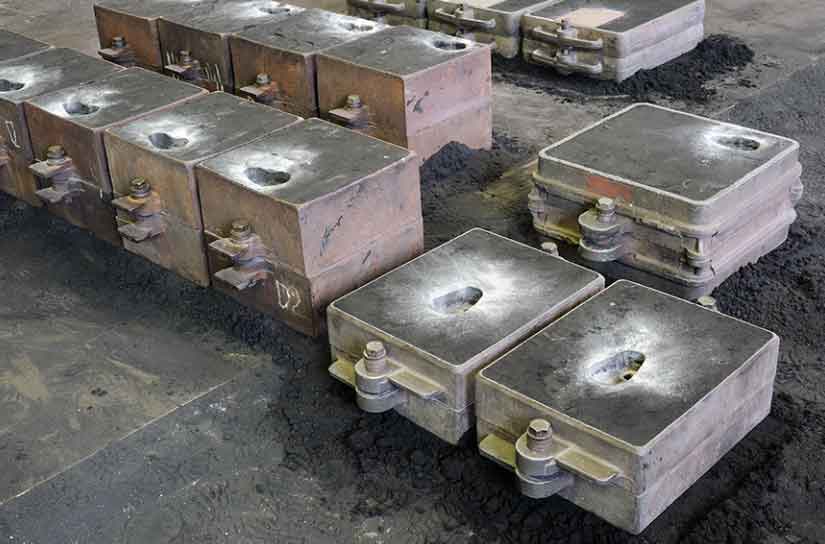
Resin sand casting is a casting process that utilizes a mixture of resin and sand to create molds for metal fabrication. This method offers several advantages in terms of enhancing precision and quality in the metal casting process. Let’s explore some of these benefits:
- Improved mold accuracy: Resin sand casting allows for the creation of highly accurate and intricate molds. The resin helps in binding the sand particles together, resulting in a more stable and precise mold. This accuracy is crucial for creating complex metal components with tight tolerances.
- Reduced casting defects: The use of resin in the sand mixture helps minimize casting defects such as sand inclusions, gas porosity, and shrinkage. The resin acts as a barrier, preventing the sand from eroding or collapsing during the casting process. This results in a smoother surface finish and reduces the need for extensive post-casting rework.
- Enhanced dimensional stability: Resin sand molds have excellent dimensional stability, meaning they retain their shape and size during the casting process. This stability ensures consistent part dimensions and helps maintain the required tolerances. It is particularly beneficial when producing large or critical components where dimensional accuracy is crucial.
- Wide material compatibility: Resin sand casting supports a wide range of metals and alloys, including ferrous and non-ferrous materials. This versatility makes it suitable for various applications across industries. Whether you’re working with steel, aluminum, bronze, or other alloys, resin sand casting can accommodate the material requirements.
- Cost-effective production: Resin sand casting offers cost advantages over other casting methods, especially for small to medium-sized production runs. The molds can be produced relatively quickly and at a lower cost compared to more intricate casting processes like investment casting. This makes resin sand casting an attractive option for manufacturers looking to achieve high-quality results without breaking the budget.
- Flexibility in design modifications: Resin sand molds are relatively easy to modify or repair. If design changes are required, the mold can be altered quickly by removing or adding material to achieve the desired modifications. This flexibility allows for greater agility during the prototyping and production stages, reducing lead times and costs associated with tooling modifications.
- Environmental considerations: Resin sand casting is considered a more environmentally friendly casting method compared to processes that use chemically bonded sand. Resin sand molds can be easily recycled and reused, reducing waste and minimizing the environmental impact of the casting process.
Resin sand casting offers numerous advantages in terms of enhancing precision and quality in metal fabrication. Its ability to produce accurate molds, reduce casting defects, provide dimensional stability, and accommodate a variety of materials makes it a valuable technique for manufacturers seeking high-quality metal components.
